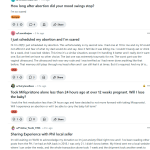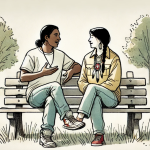
The Struggles of Commercial Sex Workers in the Pandemic
Imagine facing a pandemic without a safety net. No job security, no access to basic health services, and no way to socially distance. For many involved in commercial sex work during the COVID-19 pandemic, this scenario wasn’t a hypothetical—it was their reality. A recent study offers a rare glimpse into their lives, highlighting how a public health crisis magnified existing vulnerabilities.
How COVID-19 Changed the Game
When the pandemic hit, it reshaped every industry—and commercial sex work was no exception. Early on, curfews and stay-at-home orders reduced demand, especially at street level. Yet for those under the control of traffickers, these changes often meant longer hours and greater exposure to danger. One participant in the study described working grueling shifts in freezing weather, with the fear of retribution looming if financial expectations weren’t met.
At the same time, social distancing mandates created new barriers. Sex work inherently involves close contact, making adherence to public health guidelines nearly impossible. Some workers did their best to adapt, using masks and sanitizers, but traffickers often ignored such precautions. Tragically, even basic protective measures could lead to violent retaliation for workers refusing clients.
The Double Burden of Isolation
Isolation during the pandemic was challenging for everyone, but for commercial sex workers, it came with a cruel twist. Many traffickers imposed strict control, cutting off workers from news, social services, and even their own families. One participant recalled learning about the pandemic weeks after it began, feeling disoriented and powerless.
For others, the isolation came not from traffickers but from the pandemic itself. Social service agencies closed their doors or limited services, leaving many without access to shelters, medical care, or substance use treatment. Some workers reported moving in with their traffickers simply because there were no other options.
Barriers to Help and Safety
Accessing support systems was another uphill battle. As one woman recounted, a lack of transportation and the closure of shelters forced her to rely on an abusive partner for housing. Others avoided hospitals for fear of contracting the virus or being coerced into vaccinations they mistrusted.
The closure of community resources created a ripple effect. Without safe havens or financial assistance, workers faced increased exploitation and reduced autonomy. And while unemployment benefits provided a lifeline for some, most in the commercial sex industry were excluded, leaving them with few options to escape the cycle of abuse.
Glimmers of Resilience and Change
Amid these challenges, stories of resilience emerged. For a small group of workers with greater agency, the pandemic offered an opportunity to change their circumstances. Some transitioned from street-based work to online platforms, while others narrowed their clientele to trusted regulars. A few even left the industry altogether, supported by unemployment benefits or a renewed focus on family and health.
One woman described how COVID-19 prompted her to reevaluate her life, ultimately leaving sex work to protect her daughter and elderly mother. Another credited unemployment benefits with giving her the financial breathing room to pursue sobriety and a fresh start.
Lessons for the Future
The study underscores the need for a more inclusive public health response. Traditional safety messages—wear a mask, stay home—don’t work for people without the agency to follow them. Future crises must consider the unique challenges faced by marginalized populations, including those in commercial sex work. Flexible funding, harm reduction strategies, and community-led interventions can make a significant difference.
Additionally, the research highlights the potential of universal basic income or targeted financial support in helping people exit exploitative situations. For many, economic stability was the key to regaining control and improving their well-being.
What Do You Think?
- How can communities better support marginalized groups during public health emergencies?
- What role should financial assistance play in helping people exit exploitative industries?
Join the conversation and share your thoughts below! If you found this article insightful, please share it with others who care about creating a more equitable society.




